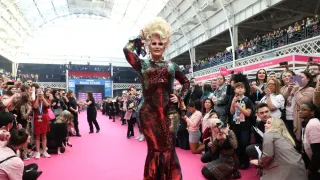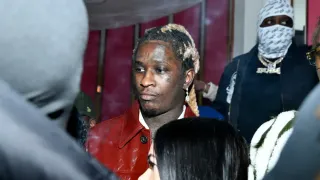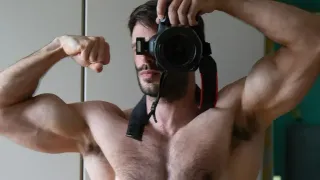
Sep 5
André Manguba Has A Body Of Art
Andrea Marks Joseph READ TIME: 15 MIN.
André Manguba is a self-taught illustrator and food artist who has not only put 10,000 hours into harnessing his creative talent, but spent hardworking time in the gym and at the dance studio, too. Making his art while building a literal body of art is a precise and beautiful balance that Manguba has perfected, like the flavors of a mouthwatering meal we can’t wait to devour!
Look at the happy trail, chest hair, and thick defined ab muscles in this “test shot.” The Manila man is built with a body we’d lick clean like a plate filled with our favorite meal. Delicious!
A dripping wet body, swim shorts, and strong bicep-accentuating pose is all it really takes to get our hearts racing.
A shirtless mirror selfie with the sharp cut of his hips drawing our eyes downward. André Manguba, we are on our knees!
A man with biceps we could bite into… The comments saying “Daddy af” and “body tea” get it.
Taking a selfie the moment he unbuttoned his pants in the fitting room… Manguba knows exactly what he’s doing, and we fully support it.
The sheer power of this “byeSeptember dump” is immense!! It feels like Manguba could knock us out with just one look and a smile on his face. He knows he’s serving body in the dance video (slide 6) too!
Get André Manguba on the next Beyoncé tour!! We can’t take our eyes off him, dancing or not, but it’s undeniable that he’s slaying the tour choreography.






